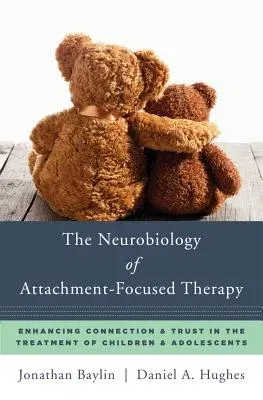How can therapists and caregivers help maltreated children recover what
they were born with: the potential to experience the safety, comfort,
and joy of having trustworthy, loving adults in their lives?
This groundbreaking book explores, for the first time, how the
attachment-focused family therapy model can respond to this question at
a neural level. It is a rich, accessible investigation of the brain
science of early childhood and developmental trauma. Each chapter offers
clinicians new insights--and powerful new methods--to help neglected and
insecurely attached children regain a sense of safety and security with
caring adults. Throughout, vibrant clinical vignettes drawn from the
authors' own experience illustrate how informed clinical processes can
promote positive change.
Authors Baylin and Hughes have collaborated for many years on the
treatment of maltreated children and their caregivers. Both experienced
psychologists, their shared project has bee the development of the
science-based model of attachment-focused therapy in this book--a model
that links clinical interventions to the crucial underlying processes of
trust, mistrust, and trust building--helping children learn to trust
caregivers and caregivers to be the trust builders these children need.
The book begins by explaining the neurobiology of blocked trust, using
the latest social neuroscience to show how the child's early development
gets channeled into a core strategy of defensive living. Subsequent
chapters address, among other valuable subjects, how new research on
behavioral epigenetics has shown ways that highly stressful early life
experiences affect brain development through patterns of gene
expression, adapting the child's brain for mistrust rather than trust,
and what it means for treatment approaches.
Finally, readers will learn what goes on in the child's brain during
attachment-focused therapy, honing in on the dyadic processes of
adult-child interaction that seem to embody the core mechanisms of
change: elements of attachment-focused interventions that target the
child's defensive brain, calm this system, and reopen the child's
potential to learn from new experiences with caring adults, and that it
is safe to depend upon them.
If trust is to develop and care is to be restored, clinicians need to
know what prevents the development of trust in the first place,
particularly when a child is living in an environment of good care for a
long period of time. What do abuse and neglect do to the development of
children's brains that makes it so difficult for them to trust adults
who are so different from those who hurt them? This book presents a
brain-based understanding that professionals can apply to answering
these questions and encouraging the development of healthy trust.

